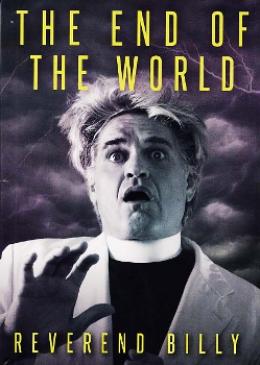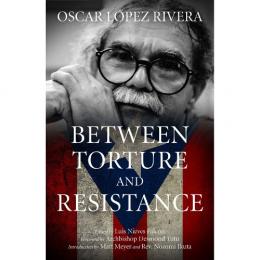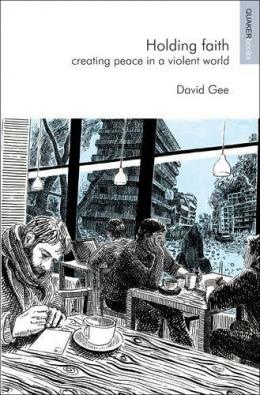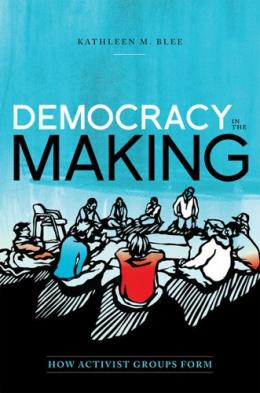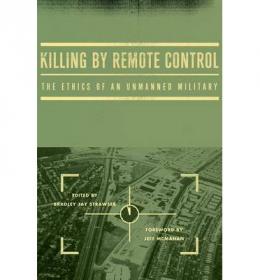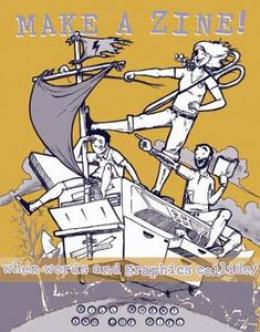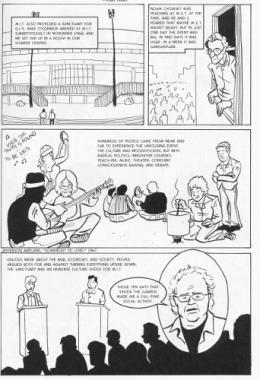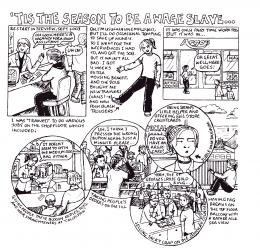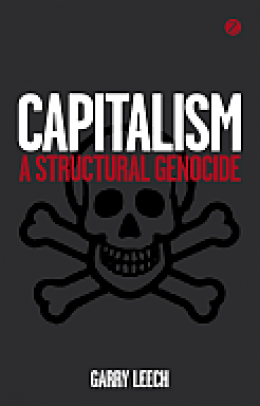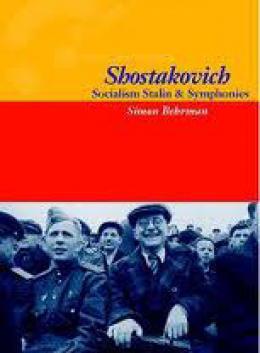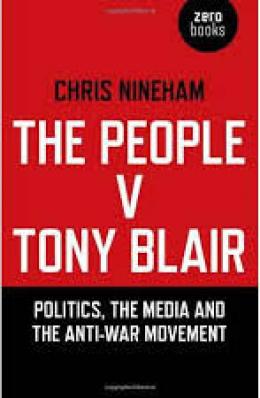Since creating the post-religious Church of Stop Shopping in 1999, the Reverend Billy has held services in churches, community centres, forests, fields, parking lots, shopping malls and – above all – inside brand-name stores across the US and Europe, preaching against consumerism, and for economic and ecological justice.
The creation of actor Bill Talen, the Reverend Billy is a televangelist-style preacher with Elvis hair…
Reviews
Puerto Rican nationalist Oscar Lopez Rivera has the dubious distinction of being one of the longest-serving political prisoners in the world.
Having served in the US army in Vietnam, Rivera returned to Chicago and started working to improve living conditions for Puerto Ricans in the city.
Radicalised during this period, he became a forceful advocate for Puerto Rican independence from the United States. Facing police repression, Rivera went underground for several years. In 1981, he was captured and imprisoned for conspiring ‘…
This accessible book – exploring what it means to make a commitment to peace in a violent world – could appeal equally to someone with an interest in peace who may be wishing to find ways of putting this into action, as to a seasoned activist. As much to an agnostic as a person of faith. Wherever you are internally, that is where it takes hold and shakes you.
I even lost my copy, preferring perhaps to drift in the ‘pale blue window’ dividing the ‘over there’ of violence from the ‘here and now’ of a comfortable, oppressive reality.…
Do you give a damn about the future of democracy? Read this book.
Do you want tools to help our species to respond to climate change with the speed and breadth it needs? Read this book (although it barely mentions climate change at all).
Do you need to restore your faith in the ability of academics to have important ideas and insights and express them in real English? Read this book.
Kathleen Blee, an American sociologist, spent four years attending the meetings of new groups that sprang up in Pittsburgh between 2003…
This collection of academic essays is edited by Bradley Jay Strawser, a philosophy professor at the US navy postgraduate school in California. Interviewed last year by the Guardian, Strawser was quoted as saying that, as far unmanned drones are concerned: ‘It’s all upside. There’s no downside. Both ethically and normatively, there’s a tremendous value.’
Like most collections of essays, some are better than others. In ‘Just War Theory and Remote Military Technology: A Primer’, Matthew Hallgarth, a former US air force major,…
The first zines I bought were punk publications in the late ’70s, and in the early ’90s I produced my own zine. (Wikipedia definition: ‘A zine [zeen; an abbreviation of fanzine, or magazine] is most commonly a small circulation self-published work of original and/or appropriated texts and images usually reproduced via photocopier.’) I’ve read hundreds of zines over the years, and samizdat publishing holds a huge place in my heart. There is an immediacy and humanity about holding a zine in your hands that a website or blog will never achieve…
While ‘[m]any people believe that America’s addiction to automobiles is a cultural problem’, in reality – as cartoonist Andy Singer explains in this wonderful ‘pictographic examination’ of the American transport system – the country’s ‘automobile addiction has more to do with politics, government agencies, and the [US] tax structure’.
Indeed, in the 1920s, most North Americans lived in cities, many of which had great public transit and inter-urban rail systems, leading the president of General Motors, Alfred Sloan, to note that – as…
Parecomic: The Story of Michael Albert and Participatory Economics is a clear, thoughtful and compelling introduction to some of the most challenging ideas around, and to an inspiring life of radical construction. After leading revolutionary student activism in the top scientific university in the US, MIT (the sanctuary described above had a huge impact), Michael Albert was the driving force in creating: an important…
Whether she’s recounting a wildcat strike by refuse workers in her home town of Brighton, an overland journey across the Eurasian landmass to Korea or helping to feed 10,000 protesters during the 2005 mobilisation against the G8 in Scotland, anarchist chef Isy Morgenmuffel’s autobiographical zine anthology Diary of a Miscreant, (112pp, available from www.activedistributionshop.org…
This book is about contemporary capitalism and how it generates and perpetuates a system of inequality and structural violence. Despite its hefty title, it’s a page-turner, accessible to the general reader, as well as having a solid and thorough clarity to hold its own in academic circles.
Using case studies from around the world, Leech illustrates the intentions and realities of capitalism’s economic and social theories and policies.
Remember how Thatcher’s programme for the privatisation of social housing in Britain was…
When a small group of weavers, colliers, woolsorters and cloggers opened a shop in north of England on 21 December 1844, Gabriel Carlyle writes, they can hardly have imagined the massive global impact their enterprise would ultimately have.
Though not the first consumer co-operative (Scotland’s Fenwick Weavers established an enterprise for the bulk purchasing of food in 1769), their far-sighted principles – which included not only a commitment to selling unadulterated food, but also the election of management on the basis of one…
The Russian composer Dmitri Shostakovich – considered by some to have been the greatest symphonist of the 20th century – lived through the October Revolution, the age of Stalin, and a good proportion of the post-Stalin Soviet years; he’s a composer who can’t be ignored by any activist interested in the cultural aspects of 20th century politics.
Music’s ‘meaning’, beyond the abstract and physical pleasure of the sounds, can relate to the political situation a composer is in, as well as to the cultural background in terms of what ideas…
A central figure in Stop the War Coalition (STWC) since its founding in 2001, Chris Nineham has written a short, timely and very readable book exploring the relationship between the anti-war movement and the Blair government in the run-up to the 2003 invasion of Iraq.
Nineham provides a concise summary of the discussions within the Bush administration after 9/11 and an interesting analysis of the surprisingly positive media coverage of the anti-war protests in the UK circa 15 February 2003. He also recounts the panic the anti-war…
‘A certain feeling comes from throwing your good life away, and it is one part rapture. Or so it seemed for now, to a woman with flame-colored hair, who marched uphill to meet her demise.’ So opens Barbara Kingsolver’s latest novel, as her heroine Dellarobia Turnbow staggers up the mountainside to start a potentially disastrous love affair. It’s an arresting beginning, and with any other writer betrayal, heartbreak and destruction would follow. But this is Kingsolver, a novelist with wider interests, and Dellarobia never reaches her…
‘What if something that didn’t happen had happened differently?’ is the tricksy question at the heart of Scottish Trotskyist Ken Macleod’s 2001 sci-fi novella The Human Front, re-printed here alongside two short essays and an interview with the author.
Like the shark in Jaws, the non-event in question is not revealed immediately, but its consequences are on display from page one.
It is 1963, and our narrator John Matheson – then a young boy living on the Isle of Lewis – hears Stalin’s death announced on the radio. The former…


